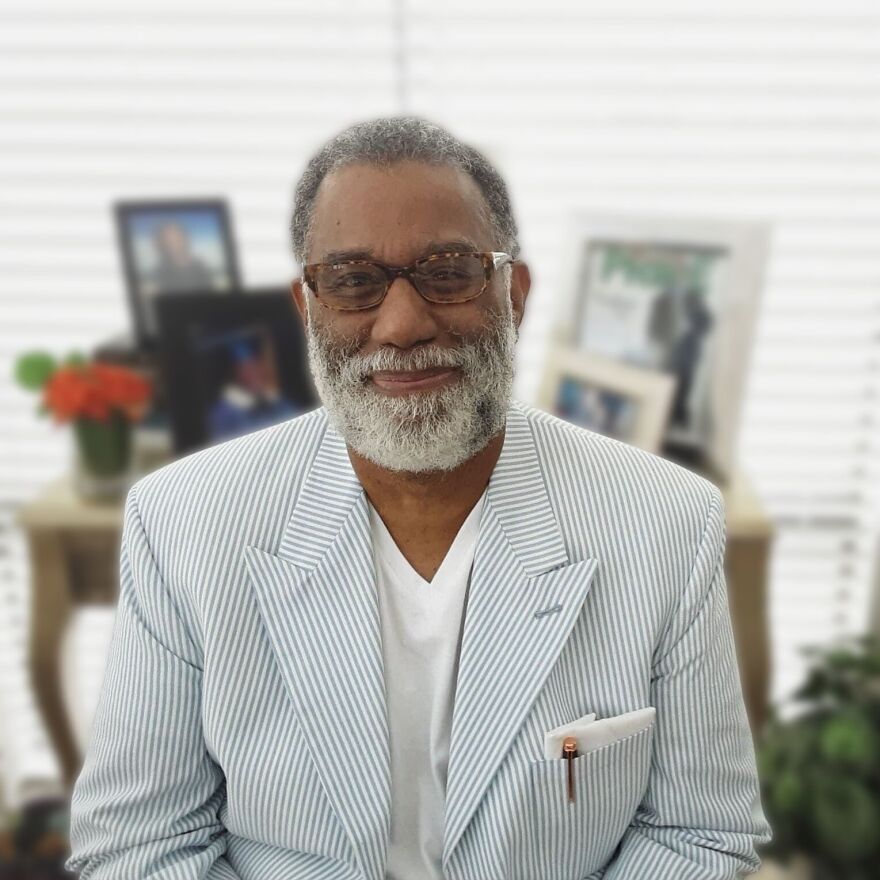Friends and family said their final goodbyes to clothing designer Cary Mitchell on Friday at Victory Christian Center Dome in Charlotte. Mitchell, who was known for his custom clothing designs in this region and beyond, died on April 2.
Family and friends said that if you spoke to Mitchell, he would rarely speak of his accomplishments. But his accomplishments spoke for themselves. He designed clothes for legends such as Tiger Woods and was even dubbed as 'Tiger's Pants Guy" in a May 2004 Sports Illustrated. Athletes Dwight Howard, Scottie Pippin, Yao Ming, Alonzo Mourning, Ken Griffey Jr. and Charles Barkley wore his designs. Mitchell also designed the first uniform for the NBA team the Charlotte Bobcats.
He made custom suits for the former Charlotte-Mecklenburg Police Chief Rodney Monroe and former Mayor Anthony Foxx for their appearances at the 2012 Democratic National Convention.
Never one to boast, he silently enjoyed the fruits of his labor, his sister said. He was just happy to bring joy to people.
John Mitchell, his brother, said Mitchell was always a sharp dresser and was extremely meticulous about his shoes and blazers. John Mitchell said his brother’s sense of style was influenced by their older sister Sheryl.
"She was like a seamstress. She had her own sewing machine and was on it a lot. It wasn't something that just sat in the corner," John Mitchell said. "I can remember my brother going to thrift stores and would buy suits that almost fit, and my sister could make them fit perfectly once she was done. He knew how he wanted to dress."
"Cary would fly in from Charlotte to Richmond once a week and stay for two days to help care for our sister, who had cancer," said his younger sister Ida Mitchell. "Later, he did the same thing for our parents. We're just that kind of family. That's who we are. That's who he was, and he would do that for anyone."
Mitchell grew up in a close-knit family and community in Richmond, Virginia. He was born the second child to John Thomas Mitchell and Elizabeth Mitchell on February 20, 1960.
Mitchell's mother worked at a tobacco company to help support the family. Because she worked the night shift, she couldn't go to church as much as she wanted, but that didn't stop her from helping out her church community and family.
"My mother was a one-person mission team," John Mitchell said. "We would always help out older aunts and uncles — we would usher people to the next phase, and we had held a lot of hands of older relatives when they passed on. Cary was one of those people who would always take care of aunts and uncles when he was available, and he learned that from our mother.”
His father was well known for being one of the first Black radio DJs in Richmond, where he met music talents such as James Brown, prominent political figures and Black activists. And their great-great uncle owned the Richmond Planet, a Black newspaper. But it was seeing how respected and adored his father was in their community that made Mitchell want to live up to the family name.
"My father's reputation was an example for all of us, but definitely for Cary," John Mitchell said. "My dad was very popular, but my dad was very humble — especially compared to the people that my dad had to hang around."
When it was time to go to college, it was a given that Mitchell would go to an HBCU. He chose Johnson C. Smith University.
Mitchell's friend and WFAE board member Nick Wharton said Mitchell loved Johnson C. Smith: “He knew everybody, and people knew him through multiple generations. He was the university."
JCSU President Clarence D. Armbrister said in a statement regarding Mitchell's death, "I am proud to know how well he served the university and so many worthwhile charities."
Armbrister added, "His journey as a student who embraced his talent for clothing design — and honoring the communities from which he came including, of course, our institution, is a true example of what we hope all our students become."
Erik Spanberg, managing editor for the Charlotte Business Journal, had interviewed Mitchell since the late 1990s. Spanberg said what stood out to him the most is how much Mitchell cared about the community.
"He knew all these famous people, and while he was excited to do the work, he never forgot about people who were faced with difficult circumstances," Spanberg said. "He would always remind us who was left behind, who was struggling, and how we could help them — he loved his community and his alma mater, JSCU, in the best way, which is that he could look at it objectively."
Spanberg said that Mitchell wouldn't just talk about the bigger issues such as education and housing but also the everyday things people would need, such as access to parks in various neighborhoods and other aspects of economic mobility.
"He was such a sweet soul — who was so plugged into the community," Spanberg said.



